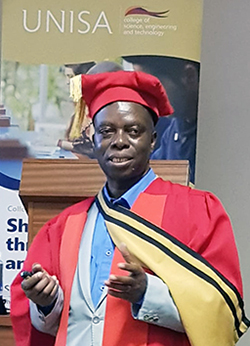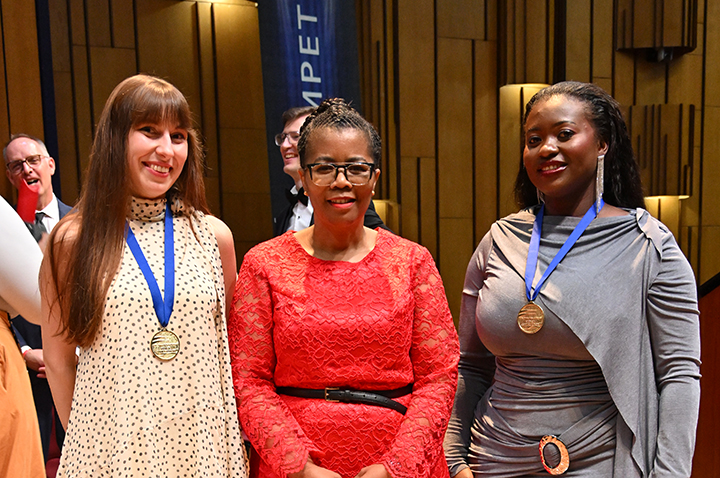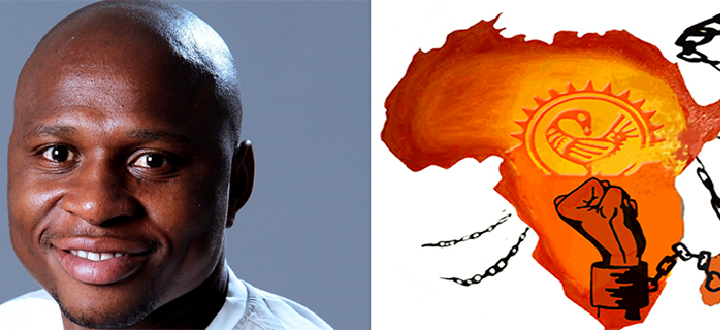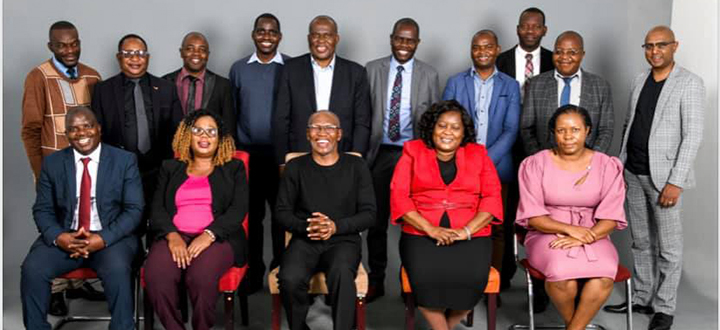
Providing affordable, accessible, high quality, relevant Science Engineering and Technology programmes

Prof Mantile Lekala
The inaugural lecture of Prof Mantile Lekala, Physics, titled From few-body physics to many-body physics: A layman’s narrative of the subject through the epochs, from Big Bang to present, took place on 23 August 2018.
Summing up his lecture, Lekala said that the field of few-body physics is a very active and exciting field. Few-body physics techniques are applicable to studying systems and phenomena in a wide range of fields, from few-body systems to many-body systems such as Bose-Einstein condensation. Few-body physics techniques can be applied to reveal the rich structure of the fundamental components of matter, he concluded, thus growing our understanding of the Universe.
You can read the lecture here.
A perfect day starts with taking my boy to school. Related to that is spending quality time in the evening with my family: sharing jokes, the day’s activities, etc.
A fish almost always shows versatility and agility in the sea without an "expectation" of a reward. This is the reason I would prefer to be a fish if I was a sea creature.
Travelling backward in time, the person I would like to meet is Ettore Majorana (1906 - 1959), an Italian theoretical physicist, who sadly disappeared under mysterious circumstances. His intellectual aptitude is best summarised by the following 1938 quote attributed to his mentor, Enrico Fermi: "There are several categories of scientists in the world; those of second or third rank do their best but never get very far. Then there is the first rank, those who make important discoveries, fundamental to scientific progress. But then there are the geniuses, like Galilei and Newton. Majorana was one of these."
On my first day at university, while attending the orientation day, the Vice-Chancellor of my Alma Mater said the following (and I paraphrase): "You are all welcomed for being admitted in this august university. But not every one of you is going to get the degree from this university. You are going to have to earn it." The message I got from this and have since then lived is that hard work, and hard work alone, will make you succeed, however the odds.
There is nothing in comparison to seeing the students achieving their dreams, progressing from one year of study to another, from undergraduate to postgraduate. Through proper mentoring and guidance, this is almost achievable all of the time.
* Compiled by Sharon Farrell, Editor: Internal Communication, Department of Institutional Advancement
Publish date: 2019/03/27
 Unisa celebrates a project of hope, dignity and student success
Unisa celebrates a project of hope, dignity and student success
 Women vocalists take top honours at Unisa's globally renowned showcase
Women vocalists take top honours at Unisa's globally renowned showcase
 African wealth is dependent on investment in education and development
African wealth is dependent on investment in education and development
 Unisa celebrates matric result success at Correctional Services ceremony
Unisa celebrates matric result success at Correctional Services ceremony
 Unisa ICT Director recognised among acclaimed IT leaders
Unisa ICT Director recognised among acclaimed IT leaders